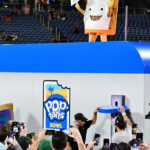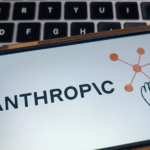Meta’s AI chatbot Dating Assistant helps users customize searches so they “go beyond traditional traits like height or education, supporting unique prompts like ‘find me a Brooklyn girl who loves live music, cats, and museums,’” Kumar said.
The platform looks to capitalize on young adults: an age group that has seen a 10% increase in matches year-over-year, Kumar said. Kumar declined to comment on how many users are currently on the platform.
Both of Meta’s new AI-powered features are free, but some experts tell Fortune they still might not be worth it.
“My first thought is these new AI features may feel like too little, too late,” Amber Lee, a matchmaker and relationship expert, told Fortune. “Gen Z already associates Facebook as a platform for an older demographic, so this feels more like a PR stunt than something groundbreaking in the dating space.”
But, “this can potentially backfire as users are looking for authentic connections,” Lee admits. “Gen Z is likely to be turned off by the inauthentic nature of AI-polished profiles. These singles are seeking genuine connection, not one [run] by AI.”
To be sure, some dating experts see the features as a step in the right direction for AI-powered dating apps.
Jess Carpino, a former sociologist for Tinder and Bumble, told Fortune Meta’s new feature is an intuitive move.
“It’s trying to understand users’ needs in a more granular way,” Carpino said. “Custom search points to a shift from demographic-driven filters to a more robust system for zeroing in on personal preferences.”
Carpino also points to long-standing misconceptions about Gen Z’s “fatigue,” noting that many in the cohort are still in school or embedded in local communities—historically the channels where people have met romantic partners.
Still, skeptics question whether more personalization and less friction is really what Gen Z users crave.
Avigail Lev, a psychologist and dating coach, told Fortune singles want tools that “help them bring relationships into real life more quickly:”features like local events, group meet-ups, or gentle nudges to take conversations offline.
“Swipe fatigue is real, but it doesn’t come from the physical act of swiping,” Lev said. “It comes from the endless, addictive loop of browsing options without meaningful follow-through.”









